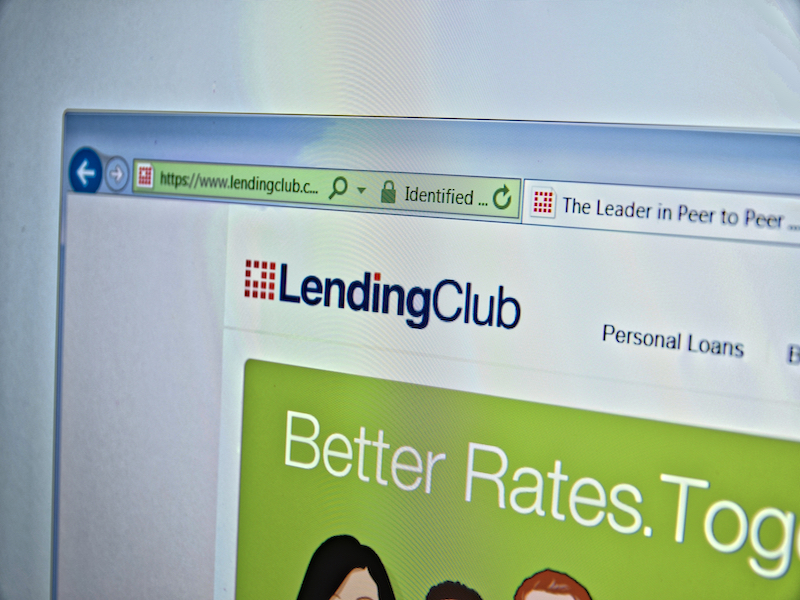Business
Lending Club’s Market Value Takes a Nose Dive – Don’t Be Conned By Very Low Share Prices

The US peer-to-peer online loan company has been up against devastating blows over recent times, especially with the recent drop in market value by 42%.

As a preparation for the next boom, businesses take an advantage of the perfect opportunity of low prices in buying shares.
Looking at the typical investment pattern in a market boom and bust, it usually sounds like the following:
- Often the extreme risk takers and odd angel investor will go in straight after a bust, so everyone thinks they are mental.
- Peer companies start believing that they and their investors can make a profit – usually from a leading member in the new market segment is bought and has attention from the media.
- Value of shares increase, creating higher pressure for investors to sell-out or allow further profit growth.
- The next wave of new shareholders are investment bankers, who only gamble if the payoff is sure.
- Suddenly everyone gets nervous and start taking out their money – causing the value to plummet until the point share prices start picking up again.
And the cycle goes on unless the business goes bankrupt or closes down.
Background of Lending Club:
LendingClub is an online medium to allow lenders and borrowers to exchange services while the platform takes a small fee for mediating the money.
While initially yielding $8.3 billion in valuation, we will look at why investing in them maybe a bad idea.
But going by the previous explanation of the cycle, wouldn’t it be wise to invest in Lending Club now?
There are numerous reasons why Lending Club would be a bad investment; the fact that they are losing vast sums of money is one of them.
Throughout 2014, the firm lost over $23 million, and things haven't seemed to change.
It has also spent over $167 million on trying to encourage new revenues; mainly on the following areas:
- Lawyers
- Accountants
- Product development
- Marketing
- Sales
- Servicing
However, despite all efforts, there is just no evidence that Lending Club will ever be able to grow profits.
[ms_divider style=”normal” align=”left” width=”100%” margin_top=”30″ margin_bottom=”30″ border_size=”5″ border_color=”#f2f2f2″ icon=”” class=”” id=””][/ms_divider]
[ms_featurebox style=”4″ title_font_size=”18″ title_color=”#2b2b2b” icon_circle=”no” icon_size=”46″ title=”Recommended Link” icon=”” alignment=”left” icon_animation_type=”” icon_color=”” icon_background_color=”” icon_border_color=”” icon_border_width=”0″ flip_icon=”none” spinning_icon=”no” icon_image=”” icon_image_width=”0″ icon_image_height=”” link_url=”https://offers.thecapitalist.com/p/warrenbuffet/index” link_target=”_blank” link_text=”Click Here To Find Out What It Said…” link_color=”#4885bf” content_color=”” content_box_background_color=”” class=”” id=””]Warren Buffett Just Told His Heirs What He Wants them To Do With His Fortune When He Dies. [/ms_featurebox]
[ms_divider style=”normal” align=”left” width=”100%” margin_top=”30″ margin_bottom=”30″ border_size=”5″ border_color=”#f2f2f2″ icon=”” class=”” id=””][/ms_divider]
The threat of an interest rate rise
The threat could be the primary reason why they decided to sell shares to the public, once the cost of borrowing goes up then this platform may not seem such a lucrative service to customers anymore.
So profit would only be the case if big institutions and hedge funds start to offer loans through Lending Club, to achieve exceptional yields.
These loans will result in fast-money providers, who support the borrowers, being less likely to provide new loans – especially if higher interest rates cause stagnation for the economy
Also, note that:
Borrowers will find it harder to make repayments, which causes a lot greater risk for the lender.
Overvaluing the Shares
The value of a LendingClub share was once $44, which was over-inflated when compared to Facebook ($17.73) or Twitter ($14.10).
The over inflation was questionable when annual revenue reports came out at $192 million while funds for market capitalization were a staggering $8.3 billion.
The figures showed massive risk for this venture, even to the extent of highlighting the share sales as a type of scam.
The quick growth makes it a riskier prospect.
Many investors would be excited at the rapid increase in revenue, which experienced a rise of 123% in the initial nine months of the year, in comparison to the depressing figures in 2013.
The sudden increase signifies that such a rapid lending spike will lead to market pressure for looser credit agreements, which will ultimately lure in customers who won’t be able to make future repayments.
In short, this was also one of the fundamental errors conducted by the banks collectively, for causing the credit crunch in 2008.
LendingClub’s trouble with the law:
The humanity of this business practice is also a concern; accusations that the firm offers illegal usurious loans, to avoid the state’s cap on interest rates. Their relationship with WebBank meant loans could originate from the Utah-located bank instead.
So basically, they are trying for more profit by slapping higher interest rates onto customers – abusing the fact that they in a vulnerable situation, caused by financial difficulty in the first place.
The current result:
LendingClub is now the smallest lender in S&P500, and it still doesn't have value stock.
Bloomberg has estimated, from shares trading at 15.1 times on average, that the share value could be as low as 28 cents for next year.
If this doesn’t sway you, then bear in mind also that a community of over 200 banks has formed the BankAlliance, which has suspended services with LendingClub temporarily – just while they try to understand the situation a lot better.
To round it off…
Avoid LendingClub like the plague; as the worth does not even value up to the paper, it is written on, especially when there are far more profitable and less riskier investments out there.





